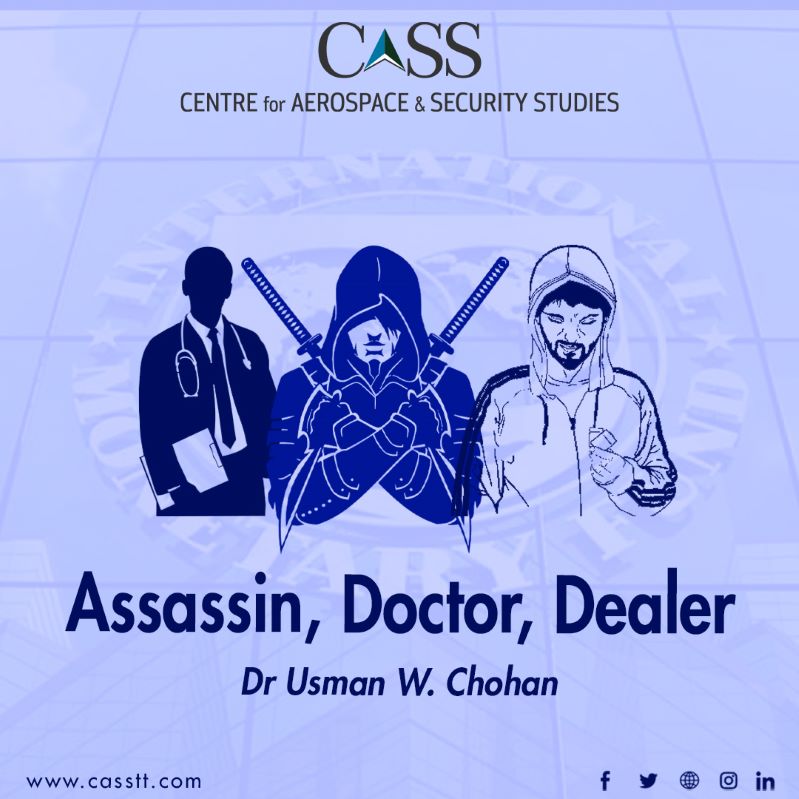The IMF is a large and complex bureaucracy which contends with multiple objectives in a dynamic international environment. Therefore, it is inherently unfair to caricature the IMF along any simplistic rubric, and such caution is borne out by scholars of public administration (particularly in the Weberian tradition), who would argue that large bureaucracies develop their own operating logics that often speak to multiple competing, and even conflicting, values.
However, in the spectacle of Pakistanis waiting for an ‘IMF deal’, there is seldom any attention paid to how the IMF might itself view how things work given stakeholders’ perceptions. For those that do consider such things, there are generally two broad views about what the IMF is doing. The first view is steeped in the ‘hybrid war’ security discourse and portrays the IMF as an instrument of economic coercion – ‘an assassin’. There are many evidentiary factors supporting this view, ranging from the economic failure of countries that followed the IMF’s neoliberal policies versus those that didn’t (e.g., Latin America, South East Asia), the confessions of John Perkins and other economic hitmen, the outsized role of the US in IMF’s policies, and other factors.
On the other side of the spectrum, we see depiction of the IMF as a ‘doctor’ or an ‘emergency ward’, where countries in financial distress go on the (ostensibly) rare occasion that they have met with a major ‘accident.’ By this account, the IMF is an expert doctor who conducts triage and trauma-repair, but it also provides ‘counseling’ so that future accidents are less likely to occur. By this logic, if a country, such as Pakistan, visits the trauma ward ever so frequently, it is not that something is wrong with the doctor, but rather with the patient. Can one imagine a person visiting the emergency room 20 different times and still survive? How would the doctor react in seeing the same patient for the 23rd time?
I believe there is another useful perspective, somewhere between the two aforementioned ones, which can prove instructive. The IMF can be seen as a ‘dealer’whose merchandise is debt. A drug pusher or merchant dealer supplies his clients with merchandise hoping for a generally stable and predictable market. He does not want to expose himself too much to any one user, but nor does he want his market itself to disappear. The IMF would become irrelevant if no country had financial emergencies, and countries that have weaned themselves off the IMF have performed much better. But the drug dealer also doesn’t want debt junkies barging through the door every day because of an increasing addiction. There are a host of developing countries that fall into this category of acute dependency, even though they are less and less likely to be able to repay.
When the overall economy is poor, more of the dealer’s usual clients also get desperate for their fix, which allows the dealer to bargain for even more. The global economy is now going through a very difficult period, with many struggling to get by in an era of higher prices and sluggish growth. Many countries are now more dependent on liquidity infusions and debt restructuring than usual, which means that these countries cannot shrug off the IMF’s conditions as dismissively as they might have done in the past. Yet the IMF, as a dealer, cannot refuse all of its frequent clients outright, since if its clients begin to die off (as in a sovereign economic collapse), it will have nowhere to push its drug stash anymore. The dealer, thus, needs to strike a delicate balance of optimisation between its clients, offering them their fix but not seeing them fall apart from the drug he ultimately pushes at a steep price.
Given this analogy, the ‘drug of debt’ can be seen as positive if used wisely, and negative when used unsustainably, imprudently, or continuously. It is the same with many substances: they can be used recreationally and responsibly to give a kick, pep, or buzz; or they can be abused and lead to debilitating consequences, and perhaps even death. Countries that use debt prudently stimulate growth and productivity (such as Chile or Rwanda), while shoring up reserves for a rainy day. On the other hand, countries that use debt imprudently find themselves in a downward spiral that can, in the worst cases, prove economically fatal.
All three perspectives, as assassin, doctor and as dealer, have their own merits. Different countries have experiences with the Fund that resonate with each characterisation. In the current phase of global and local economic hardship, the IMF has a critical role to play in helping us move past our debt addiction.
Dr Usman W. Chohan is Advisor (Economic Affairs and National Development) at the Centre for Aerospace & Security Studies (CASS), Islamabad, Pakistan. He can be reached at [email protected].





